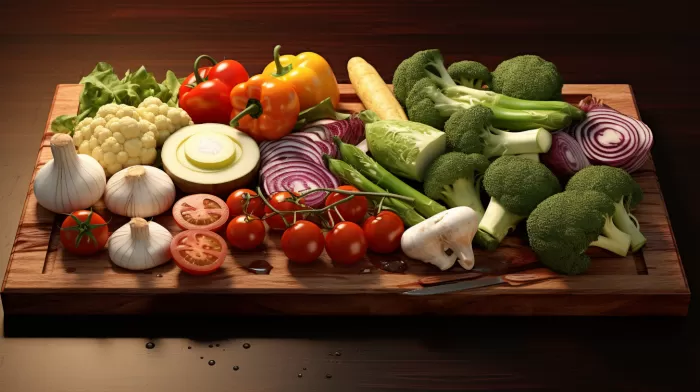In a world of ever-evolving fad diets, the raw food movement is becoming more and more popular. However, the truth is that its health benefits or drawbacks depend on several factors, and eating 100 percent raw in the long-term can be taxing on digestion and lead to feelings of weakness.
Raw food proponents assert that whole, unprocessed raw foods contain vital enzymes that aid digestion and contribute to a healthy body. Eating raw, they claim, boosts digestion and aids the absorption of other beneficial nutrients in the food. Critics argue that ancient wisdom from traditional Chinese and Ayurvedic medicine suggests that cooking food actually breaks down nutrients, making them easier for the body to digest and use. In fact, these traditions state that eating cooked food protects the body’s “digestive fire”.
The debate often leads to confusion about which type of diet is suitable for an individual. The important thing to remember is that everyone has unique dietary needs based on their health, constitution, and lifestyle. Interestingly, the raw food movement has found particular popularity among those living in warmer climates, as the basic principles of traditional Chinese medicine suggest that raw foods have a “cooling” effect on the body, which may help to balance the internal system.
The Pros and Cons of Cooked Food
In many cases, certain nutrients are more bioavailable when cooked. For example, the antioxidant lycopene, which is found in tomatoes, is more readily absorbed when tomatoes are cooked. Similarly, many vegetables such as kale, spinach, onions, and garlic, release beneficial compounds when cooked, which would otherwise pass through the digestive tract undigested.
On the other hand, there is evidence to support the claim that overcooking certain types of food, especially meats, can be harmful. Consuming overcooked food introduces chemicals into the body, such as acrylamide, which contribute to inflammation and cancer.
To promote overall health, opt for lighter cooking methods such as steaming or sautéeing without overcooking at high temperatures. These methods help improve nutrient availability and absorption while avoiding the harmful chemical reactions that occur in foods cooked at high temperatures for extended periods.
The Enzyme Debate
While raw food enthusiasts believe that enzymes in raw foods are crucial for proper digestion, others argue that the body naturally produces the necessary enzymes for digestion and does not need additional enzymes from food. They also claim that the number of enzymes in raw food doesn’t significantly improve digestion or enhance the body’s natural enzyme levels.
However, due to our busy lifestyles and processed food diets, many people are enzyme-deficient and could benefit from enzyme supplements. Such supplements are formulated to survive the acidic environment of the stomach and release their beneficial properties when they reach the small intestines, where most nutrient absorption takes place.
Regardless of whether you follow a raw food diet, a cooked food diet, or a mixture of both, providing optimal digestive support through enzymes, herbs, and nutrients can significantly improve health in various ways. A balanced digestive formula that includes amylase, alpha-galactosidase, protease, phytase, invertase, and lipase, alongside zinc and chromium, can assist in breaking down food and absorbing nutrients while promoting overall digestive function. Beneficial herbs such as pomegranate, cinnamon, ginger, and cardamom can also strengthen the digestive system and support healthy liver function.
Everything in Moderation
There is no single diet that guarantees vibrant health; nor does a single diet work for everyone. While the raw food diet may pose some nutritional challenges for those with weaker digestion, it can also provide benefits from its high content of fresh produce. The key is to practice moderation and maintain a balanced diet that incorporates a variety of healthy fats, protein, complex carbohydrates, fruits, and vegetables to provide the nutrients your body and mind need for optimal health and well-being.
For more practical health and wellness information, visit Dr. Eliaz’s website.



